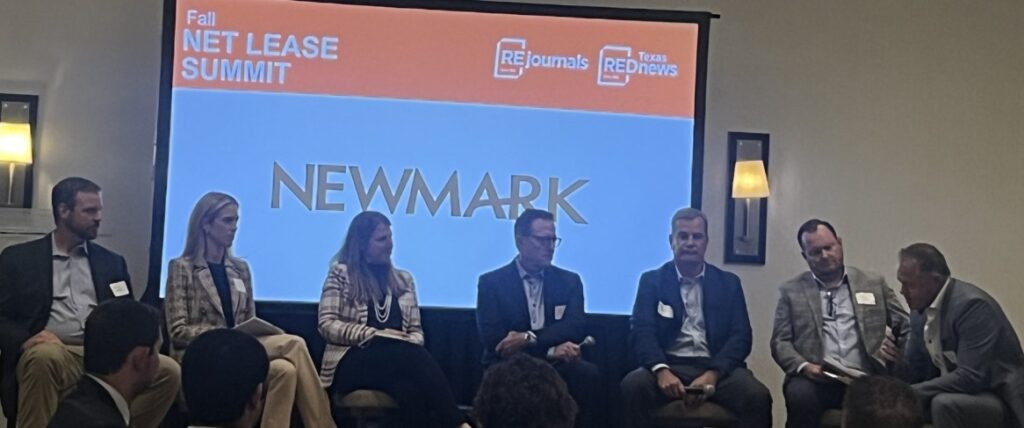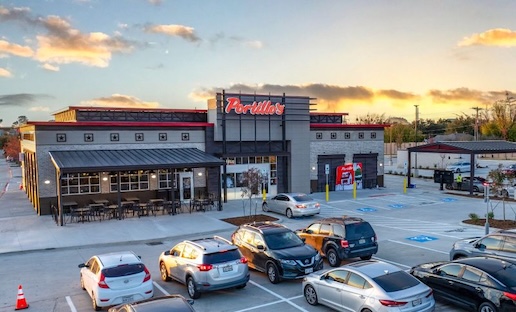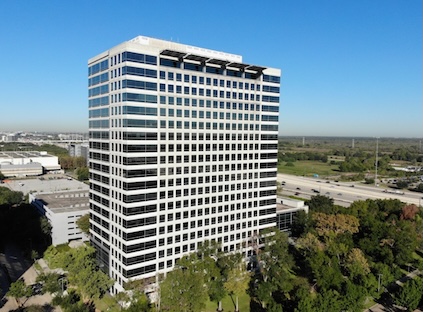The net lease sector remains one of the most resilience commercial real estate asset classes. That was evident during the Fall Net Lease Summit held by Texas REDnews and REjournals Sept. 25 at the Sheraton Dallas Hotel by the Galleria.
The event featured the top names in the net lease business. They shared their expertise with the big crowd, discussing the resiliency of net lease assets, the bright future this sector is poised to see and the challenges that the industry is working through.
The summit also provided plenty of networking opportunities. Attendees had the chance to catch up on the business, discuss recent deals and share their thoughts on the state of the market with their fellow attendees.

Sean Hostert with the Net Lease Observer podcast kicked off the summit with his keynote speech.

The summit’s first session, the State of the Net Lease Market: Optimism Ahead Amid Evolving Market Dynamics panel, focused on both the positives and challenges in today’s net lease sector. Speakers said that the net lease sector’s future continues to look bright despite the country’s economic challenges. Speaking during this panel were Jerry Hopkins, Executive Managing Director, Net Lease Capital Markets, Newmark; Stephen Preston, Chairman & CEO, FrontView REIT; Gordon Whiting, Managing Director, Founder and Co-Head Net Lease Real Estate strategy, TPG Angelo Gordon; Boyd Borjiet, Vice President, Investments, W. P. Carey Inc.; and Coler Yoakam, Senior Managing Director, Corporate Capital Markets and Single Tenant Net Lease, JLL, the panel’s moderator.

Next on the agenda was the Spotlight on Texas: Leading the Way in National Industrial Net Lease Expansion panel, with participants Scott Rohrman, Founder, 42 Real Estate; Zach Harris, Managing Director and Partner, TruCore Industrial; Tom Fishman, Executive Vice President, Acquisitions and Dispositions, Hillwood; Angie Wethington, Senior Director, Scannell Properties; and Jack Fraker, President, Global Head of Industrial and Logistics, Capital Markets, Newmark, who served as the moderator.

The Steady Streams: Retail and Medical Net Lease panel focused on two solid asset types in the net lesae sector. Speaking on this panel were Brad Motley, Partner, Trinity Real Estate Investment Services; Caroline Pinkston, Senior Director, Capital Markets, JLL; Elizabeth J. Randall, CCIM, President, Randall Commercial Group, LLC; Michael Fitzgerald, Head of U.S. Retail, Investments, W. P. Carey Inc.; Mark Manheimer, President and CEO, NETSTREIT; Dave Wirgler, Vice President, National Developer Services, Sands Investment Group; and moderator Toby Scrivner, Director, National Healthcare Group, Northmarq.

Closing the summit on the 1031 Exchange Trends: Navigating a Changing Landscape panel were participants Craig Brown, Esq., Senior Vice President, Regional Manager, Investment Property Exchange Services, Inc. (IPX1031); Greg Lehrmann, Attorney, Excel 1031 Exchange, LLC.; Brandon Balkman, Managing Director, Net Lease Capital LLC; Jared Morgan, CIO, Four Springs Capital; and Todd Phillips, CEO, Legacy Property Trust, the panel’s moderator.









